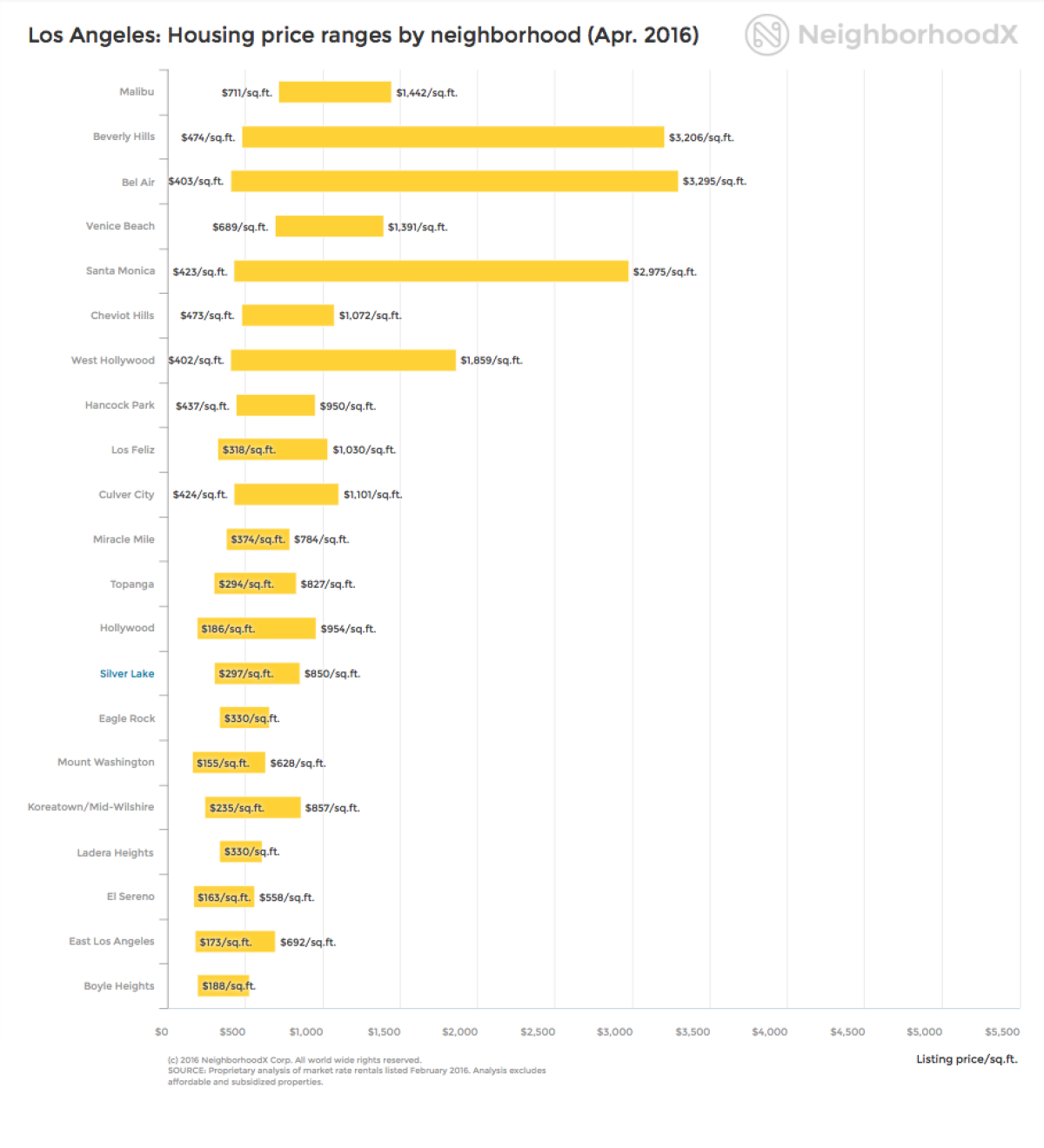Is L.A.’s housing market really as unaffordable as it seems?
The average asking price for a home in some of Los Angeles' most recognizable communities ranges from $269 per square foot in Boyle Heights to $1,118 per square foot in Malibu.
Based on these averages, one might reasonably expect that a 1,000-square-foot residence in Boyle Heights would cost about $269,000, while a similarly sized one in Malibu would go for $1,118,000. If you’re a prospective home buyer looking for affordable housing, it would seem reasonable, staring at these numbers, to steer as far clear of Malibu as possible in your search.
But is that the right approach?
We often hear about how unaffordable the L.A. housing market is. When we look at the average cost of a home in an area like Venice, the Southland's reputation for being hopelessly unaffordable certainly appears justified. Stories of bidding wars pushing up prices in once-affordable neighborhoods like Highland Park often discourage prospective buyers from even trying to purchase a home.
The reality, however, is that while many neighborhoods may seem out of reach based on price averages, those numbers don’t tell the whole story. The range of prices behind these averages can vary significantly — meaning affordable properties are available in areas where many might never think to look.

For example, while Boyle Heights has the lowest average asking price of the areas we analyzed, the prices within the neighborhood range significantly from $188 per square foot to $524 per square foot. On a per-square-foot basis, the most expensive listing in Boyle Heights is pricier than the most affordable properties in Beverly Hills ($474), Bel Air ($403) and Santa Monica ($423).
Conversely, there are neighborhoods where the average listing price is more expensive than that of Boyle Heights, but with a greater price range. In other words, these neighborhoods have properties than are more affordable than the lowest priced properties in Boyle Heights. Deals can be found in Mount Washington (as low as $155 per square foot), El Sereno ($163), East Los Angeles ($173) and Hollywood ($186) that are all cheaper than the lowest priced property in Boyle Heights ($188).
This holds true for the upper end of the Los Angeles neighborhoods, too.
For example, while the average listing price in Beverly Hills is $1,089 per square foot, it ranges from $474 to $3,206. To put this in context, the most affordable listing in Beverly Hills ($474) is less expensive than the average listing in Eagle Rock ($499). Similarly, the most expensive listing in Los Feliz ($1,030) is still more affordable than the average listing in Bel Air ($1,080).
In short, while data can help in the search for a residence or investment property, the right kind of data is even more useful. At any time, neighborhood averages can be skewed higher by new development or lower by foreclosures — and this can steer buyers away from certain neighborhoods.
Instead of simply flooding a neighborhood like Boyle Heights because it appears to be the most reasonably priced — and in doing so helping to create bidding wars — Angelenos might be better served by expanding their searches beyond what might appear to be possible at first glance.
Looking at the range behind the neighborhood averages can help buyers recognize that there are often some relative bargains even in some of Los Angeles’ most affluent neighborhoods.
Constantine A. Valhouli is the co-founder of NeighborhoodX, a real estate data and analytics site that explores cities at the neighborhood level. Follow him on Twitter at @c_valhouli.
MORE FROM LIVABLE CITY
Hey, L.A. drivers: Don't honk at bike riders
What do we do with the Silver Lake reservoirs?
Pershing Square is an urban planning nightmare. Let's redesign and get it right this time
A cure for the common opinion
Get thought-provoking perspectives with our weekly newsletter.
You may occasionally receive promotional content from the Los Angeles Times.







